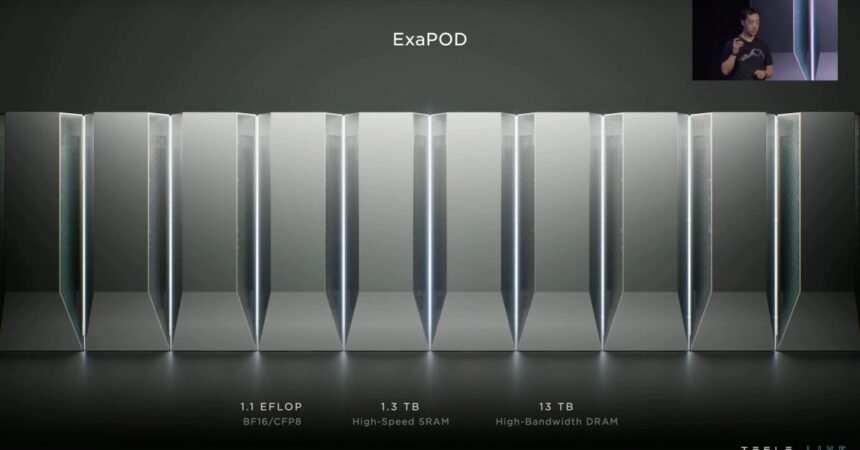Tesla’s Dojo supercomputer project has come to an end, according to a report by Bloomberg. CEO Elon Musk has decided to shut down the project following a significant departure of talent from the Dojo team to a competing startup.
Dojo was Tesla’s in-house AI chip development initiative aimed at creating supercomputers to train its AI models for self-driving technology. The company had hired top chip architects to develop better AI accelerator chips in order to reduce its reliance on external companies like NVIDIA and AMD. However, the project had been facing delays for several years.
One of the setbacks occurred in 2018 when Jim Keller, a renowned chip architect who was leading Tesla’s chip-making efforts, left the company. He was succeeded by Ganesh Venkataramanan, who also departed from Tesla in 2023. Peter Bannon, who had been leading Tesla’s chip-making programs for the past few years, is now reportedly leaving the company as well.
According to Bloomberg, Musk has instructed the Dojo project to be shut down. The remaining team members are being reassigned to other data center and compute projects within Tesla. Meanwhile, a new startup called DensityAI, founded by former Tesla employees including Venkataramanan, has been gaining traction. The company plans to develop chips for AI data centers and robots, similar to the Dojo program, and has already hired 20 former Tesla employees who worked on Dojo.
Despite the challenges faced by the Dojo project, Musk had been optimistic about its progress. He had mentioned in June that Dojo 2 would be operational later this year and that a third iteration would be even better. However, during Tesla’s quarterly conference call in July, Musk claimed that Dojo 2 would be operating at scale sometime next year.
While the fate of the Dojo project remains uncertain, it is evident that Tesla has been heavily reliant on chip suppliers rather than developing its own chips. The company is set to launch its new AI5 chip, which will be manufactured by TSMC, and has also partnered with Samsung for the production of its AI6 chip.
The discontinuation of the Dojo project may not be a significant loss for Tesla, as developing its own inference compute for onboard AI computers has always been a more crucial endeavor. The bigger concern highlighted by this report is the ongoing exodus of talent at Tesla, which could have implications for the company’s future projects and innovations.







